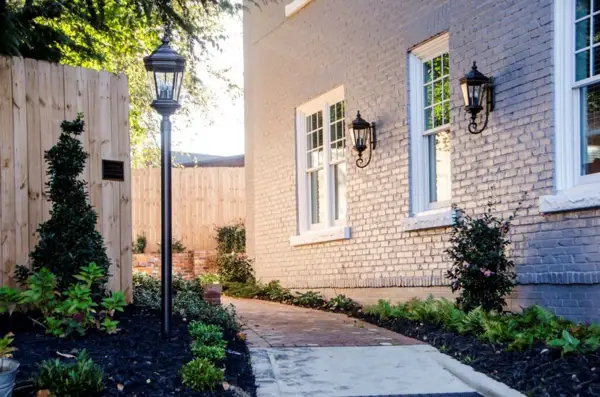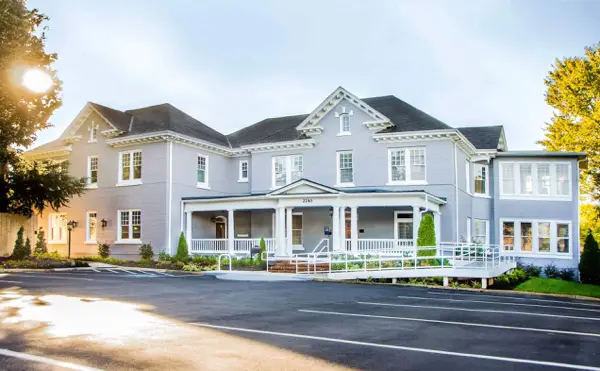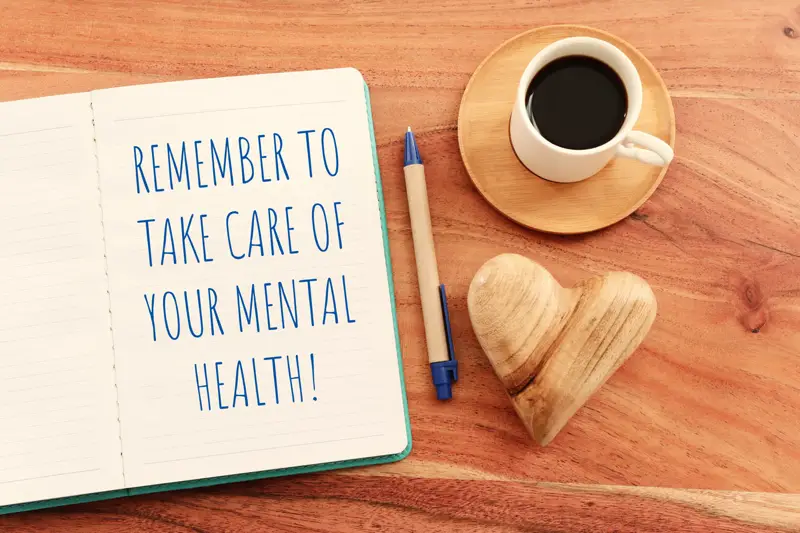Marijuana Recovery
Marijuana addiction can significantly impact various aspects of an individual’s life, from physical health to personal relationships.
At Dilworth Center, we offer specialized treatment programs to help individuals overcome marijuana dependence and achieve long-term recovery. Our team of experienced addiction professionals uses evidence-based practices to address both the physical and psychological aspects of marijuana addiction. Located in the Dilworth neighborhood of Charlotte, NC, our center provides a supportive and compassionate environment for healing. Whether you’re considering quitting marijuana edibles due to their side effects or seeking information on how to stop smoking weed, Dilworth Center is here to support your journey. Explore our comprehensive marijuana recovery services and take the first step towards a healthier, sober life.
Understanding Marijuana Addiction
Marijuana Effects on Humans
Marijuana, known for its active component THC, can have various effects on the human body and mind. While some use it recreationally, chronic use can lead to dependency and other health issues. Cannabis side effects include impaired memory, altered judgment, and coordination problems. Long-term use can also lead to respiratory issues and mental health problems like anxiety and depression. Understanding the side effects of cannabis use is important for those considering quitting weed based products, or wondering if there’s reasons to stop smoking weed.

The History of Marijuana Addiction
The history of marijuana use dates back thousands of years, with its initial use for medicinal and recreational purposes. Over time, the patterns of use have evolved, leading to widespread acceptance in some regions and stringent regulations in others. Despite its legalization in various parts, the potential for abuse and dependency remains. Recognizing the reasons to quit smoking weed and the importance of seeking professional help at a marijuana recovery center like Dilworth Center can make a significant difference in one’s life.

In ancient China, marijuana was used as a herbal remedy as early as 2737 BC. The Chinese emperor Shen Nung documented the use of cannabis in his pharmacopoeia, recommending it for various ailments, including rheumatism, gout, and malaria. Similarly, in ancient India, cannabis was used in religious rituals and as an ingredient in traditional Ayurvedic medicine.
The spread of cannabis continued through the Middle East to North Africa and eventually to Europe. In medieval Islamic societies, the use of cannabis in the form of hashish became widespread. Despite its popularity, historical records also note early instances of misuse and dependence. For example, Persian literature from the 12th century references individuals struggling with excessive use of hashish.
In the 19th century, cannabis found its way to the Americas. Initially, it was introduced as a medicinal substance and included in various tinctures and remedies. However, by the early 20th century, recreational use of marijuana began to spread, leading to increased scrutiny and regulation. The first recorded instances of widespread marijuana addiction and associated social problems were observed during this period.
The modern understanding of marijuana addiction and its treatment began to take shape in the mid-20th century. Research into the effects of THC, the primary psychoactive compound in cannabis, revealed its potential for dependency and abuse. Despite its legalization in various parts of the world, the potential for addiction remains a significant concern. Recognizing the reasons to quit smoking weed and the importance of seeking professional help at a marijuana recovery center like Dilworth Center can make a significant difference in one’s life.


Symptoms of Marijuana Addiction
Identifying marijuana addiction involves recognizing certain behavioral and physical signs. Common symptoms include a strong craving for the substance, withdrawal symptoms like irritability and anxiety, and continued use despite negative consequences. Understanding these signs and knowing how to stop smoking weed with professional support can lead to successful recovery. Dilworth Center offers family addiction support and family addiction therapy to help loved ones navigate the challenges of addiction.
The Recovery Journey
Recovery is Possible
Recovery from marijuana addiction is a challenging but achievable goal. At Dilworth Center, our programs are tailored to meet the specific needs of each individual. Utilizing evidence-based therapies and a compassionate approach, we provide the necessary tools and support for long-term recovery. Whether you’re dealing with the side effects of cannabis or seeking information on CBD vs THC, Delta-8, or Delta-9, our experts on this topic are here to help.

Recovery Expectations
Recovering from cannabis addiction involves several stages, each crucial for achieving long-term sobriety. While every individual may have slight variations of this process, this is a good overview of what to expect.

The First 30 Days : Detox and Initial Adjustment
The first month of recovery focuses on detoxification and managing withdrawal symptoms. During this phase, individuals may experience irritability, anxiety, insomnia, boredom, and cravings. Professional support is essential during detox to ensure safety and comfort. This period also involves initial counseling sessions to start addressing the psychological aspects of addiction. Learning about the side effects of cannabis and understanding the reasons to stop smoking weed are integral parts of this stage.

Days 31-90: Building a Foundation
From days 31 to 90, the focus shifts to building a strong foundation for recovery. During this period, patients engage in intensive outpatient programs (IOP) or partial hospitalization programs (PHP), which include structured therapy sessions and educational workshops. Cognitive-behavioral therapy (CBT) and motivational interviewing are commonly used to address the psychological aspects of addiction. Group therapy sessions provide peer support, fostering a sense of community and shared experience. Developing coping strategies, improving emotional regulation, and addressing any underlying mental health issues are key components of this phase. The educational aspect may also cover the differences between CBD and THC, Delta-8, Delta-9 and their effects.

Days 90-180: Strengthening Recovery Skills
Between days 90 to 180, the main focus is on maintaining sobriety. This phase includes ongoing therapy and support, with an emphasis on developing long-term recovery skills. Patients learn to recognize triggers and employ strategies to prevent relapse. Being part of support groups like Marijuana Anonymous (MA) can offer continued peer support and accountability. Individual counseling sessions address deeper issues such as trauma, relationships, and personal growth. Building a supportive network of family and friends is crucial during this stage. Therapy continues to highlight the side effects of cannabis and reinforce the reasons to quit smoking weed.

Days 180-365: Achieving Long-Term Goals
During days 180 to 365, the focus is on achieving long-term recovery goals and establishing a sustainable, sober lifestyle. This phase involves regular participation in therapy and support groups, as well as the development of healthy daily routines. It’s important to engage in activities that promote physical health, such as exercise and nutrition. Patients are encouraged to pursue personal goals, such as education, career development, and rebuilding relationships. Ongoing relapse prevention plans are adjusted as needed to address new challenges and ensure continued progress. It’s crucial to understand how to maintain balance in life without using marijuana and to recognize the ongoing benefits of abstaining from alcohol or other substances.
Beyond Your First Year Free from Marijuana
Sustaining sobriety beyond the first year requires continuous effort and support. Engaging in ongoing therapy, participating in support groups, and maintaining healthy lifestyle choices are essential. Building a strong support network and developing a sense of purpose and fulfillment in life help ensure long-term recovery. Understanding the ongoing cannabis side effects and staying informed about the latest recovery strategies can provide additional support. By committing to a life free from marijuana, individuals can achieve long-term sobriety and improved overall well-being.

My Family Member is Addicted to Marijuana, What Do I Do?
Supporting a family member who is struggling with marijuana addiction can be challenging and emotionally taxing. However, family involvement is crucial in the recovery process. Here’s how you can support your loved one and make a significant impact on their journey to sobriety.
Understanding the Addiction
The first step is to understand the nature of marijuana addiction and its effects on the individual. Marijuana can have both psychological and physical impacts, leading to dependency. Recognizing the cannabis side effects and the reasons to quit smoking weed can help you better understand what your loved one is experiencing.


Encouraging Professional Help
Encourage your loved one to seek professional help at a reputable addiction treatment center like Dilworth Center. Our programs, including drug rehabilitation for teenagers, young adult rehab, and adult IOP, are designed to provide comprehensive support at every stage of recovery. Professional treatment is crucial for addressing the underlying issues of addiction and developing effective coping strategies.
Participating in Family Therapy
Family therapy is essential for the recovery process. At Dilworth Center, our family addiction therapy sessions aim to educate family members about addiction, enhance communication, and offer emotional support. These sessions can help you comprehend your loved one’s challenges, develop strategies to support their recovery, and address any family dynamics that may contribute to the addiction.

Dilworth Center Services
Recovering from Marijuana with Dilworth Center
At Dilworth Center, we offer a comprehensive approach to marijuana recovery, addressing both the physical and psychological aspects of addiction. Our programs are tailored to meet the unique needs of each individual, ensuring that every patient receives personalized care. Below are just a few of our comprehensive treatment programs that can help you or a loved one.

Take the First Step Toward Lasting Marijuana Recovery
Are you ready to overcome Marijuana addiction? Our expert team at Dilworth Center is here to support you on your path to sobriety. Discover personalized treatment plans that empower long-term recovery. Don’t wait—reach out today and start your journey toward a healthier, Marijuana-free life.

Dilworth Center Treatment Programs

Adult Intensive Outpatient Program (IOP)
At Dilworth Center, our Adult Intensive Outpatient Program (IOP) is designed to provide flexible and effective treatment for individuals struggling with marijuana addiction. Our program offers a structured environment where patients can receive comprehensive care while maintaining their daily responsibilities. This program is ideal for those who need support but do not require 24-hour supervision.
Our Adult IOP focuses on helping patients understand the root causes of their addiction and develop the skills needed for long-term recovery. We employ evidence-based therapies, including cognitive-behavioral therapy (CBT) and motivational interviewing, to address the psychological aspects of addiction. Group therapy sessions and individual counseling are integral parts of the program, providing a supportive community and personalized attention.
If you’re looking for a drug rehab outpatient near me, Dilworth Center’s Adult IOP is a highly recommended choice. Located conveniently in Charlotte, NC, our outpatient rehab offers easy access for local residents. We understand that each individual’s journey to recovery is unique, and our tailored approach ensures that every patient receives the care they need.
Join our IOP rehab and take the first step towards a healthier, sober life. Our commitment to excellence and patient-centered care makes us a leading provider of addiction treatment in the region.

Young Adult Intensive Outpatient Program (IOP)
The Young Adult Intensive Outpatient Program (IOP) at Dilworth Center is tailored to meet the unique needs of young adults who are struggling with marijuana addiction. This program provides a supportive and structured environment where young adults can engage in effective treatment without disrupting their daily lives. Designed specifically for young individuals, our drug treatment program for young adults address both the physical and psychological aspects of marijuana addiction.
Focusing on developing coping strategies and building resilience, our young adult addiction treatment program helps participants establish a solid foundation for long-term recovery. Group therapy sessions offer peer support, while individual counseling ensures personalized care. Located in Charlotte, NC, our center is easily accessible for those seeking substance abuse treatment for young adults. By offering comprehensive care that meets the unique challenges faced by young adults, we help our patients transition into a sober, fulfilling life.
Join our Young Adult IOP and take the first step towards recovery at one of the leading drug treatment centers for young adults.

Teenager Intensive Outpatient Program (IOP)
Our Adolescent Intensive Outpatient Program (IOP) is specifically designed for teenagers struggling with marijuana addiction. This program offers a structured and supportive environment where adolescents can receive comprehensive care while continuing their education and daily activities. At Dilworth Center, we understand the unique challenges that come with rehabilitation for teenagers and tailor our approach to meet these needs effectively.
The drug rehabilitation for teens program integrates evidence-based therapies, such as cognitive-behavioral therapy (CBT) and family therapy, to address both the psychological and social aspects of addiction. Group therapy sessions provide a peer support network, while individual counseling ensures personalized attention and care. Located in Charlotte, NC, our center is accessible for families seeking effective rehab for teens.
Join our Adolescent IOP and help your teen take the first step towards recovery. Our program is designed to provide the essential tools and support needed to overcome addiction and build a healthier future.

Family Program
The Family Program at Dilworth Center recognizes that marijuana addiction affects not just the individual but their entire family. Our comprehensive approach includes family therapy for drug addiction, specifically tailored to address the dynamics of marijuana addiction. These sessions aim to educate and support family members as they navigate their loved one’s recovery journey. Through these sessions, families learn about the nature of marijuana addiction, improve communication, and develop healthy ways to support their loved one.
Our family addiction counseling services provide a safe space for family members to express their concerns, learn coping strategies, and understand the recovery process. By involving the family in treatment, we aim to strengthen the support system that is crucial for long-term recovery. Located in Charlotte, NC, Dilworth Center offers a nurturing environment where families can heal together.
With our family addiction support programs, families are equipped with the knowledge and tools they need to contribute positively to their loved one’s recovery from marijuana addiction. By fostering a supportive and understanding home environment, we help families rebuild trust and relationships that may have been strained by addiction.
Join our Family Program and see how family therapy for drug addiction and family addiction counseling can make a significant difference in your loved one’s journey to sobriety.

Mental Health Program (Dual Diagnosis)
Addressing both addictions and mental health is crucial for effective recovery, especially for individuals struggling with marijuana addiction and co-occurring mental health disorders. At Dilworth Center, our Mental Health Program is specifically designed for dual diagnosis patients, providing integrated care to treat both substance use and underlying mental health conditions simultaneously.
Our approach involves comprehensive treatment at one of the leading dual disorder treatment centers in Charlotte, NC. We offer trauma-informed evidence-based therapies, including cognitive-behavioral therapy (CBT) and motivational interviewing, to address the complex interplay between addiction and mental health. Our experienced team works closely with each patient to develop personalized treatment plans that cater to their unique needs.
Having access to a psychiatrist for addiction is a critical component of our program. Our psychiatrist specialized in treating co-occurring disorders, ensuring that patients receive the necessary psychological support. By addressing both aspects of dual diagnosis, we help patients achieve long-term recovery and improved mental well-being.
Join our program and experience comprehensive care at one of the top dual disorder treatment centers. Our integrated approach and dedicated, masters-level team provide the support needed for successful recovery from both marijuana addiction and mental health disorders.

Relapse Prevention
At Dilworth Center, we understand that maintaining sobriety requires ongoing effort and support, especially for those recovering from marijuana addiction. Our Relapse Prevention Program is designed to equip individuals with the tools and strategies needed to sustain long-term recovery.
Our comprehensive relapse prevention program involves personalized plans tailored to each patient’s unique triggers and challenges. Utilizing evidence-based relapse prevention strategies, our relapse prevention certified therapists work with patients to identify early warning signs of relapse and develop effective coping mechanisms. This proactive approach helps individuals manage stress and avoid situations that may lead to substance use.
Central to our program is the use of the Gorski model, a well-regarded method in relapse prevention. Through individual counseling and group therapy sessions, patients learn to implement these strategies in their daily lives. Our program is specifically designed for those who have completed our Intensive Outpatient Program (IOP), ensuring continuity of care and ongoing support.
By participating in our Relapse Prevention Program, patients receive the continuous support needed to maintain their sobriety and handle life’s challenges without resorting to marijuana use. Join our program and empower yourself with the knowledge and skills to sustain a healthy, sober life.










